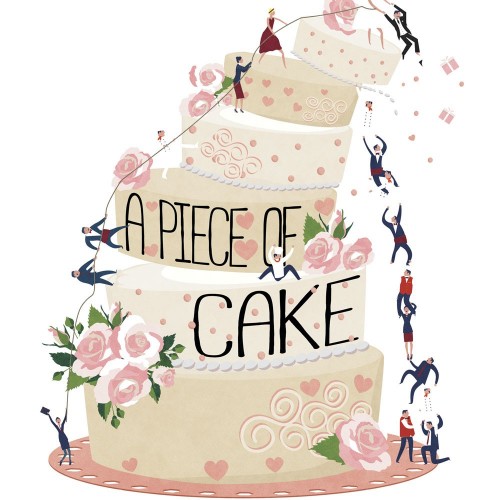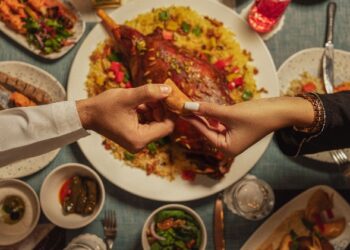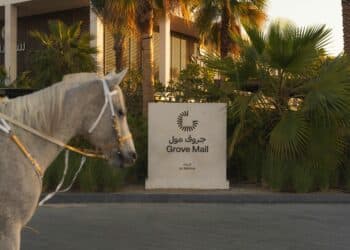Ensuring nothing goes wrong on the most important day of a guest’s life is no mean feat. Crystal Chesters examines the role F&B teams play in creating the perfect wedding

Spring is the season of wedding planning, and April will see a number of exhibitions take place across the region, with the Abu Dhabi edition of BRIDE coming up on 13-16 April at Abu Dhabi National Exhibition Centre, and in Saudi Arabia, the International Wedding Fair 2016 ‘A’arasna’ to take place from 10-13 April in Riyadh. In Katara Hall, Doha, the IWED Qatar show is set to reel in brides-and grooms-to-be from 26-30 April, while Ras Al Khaimah is gearing up for the Wedding Show at RAK Expo from 19-23 April.
The Middle East’s popularity as a wedding destination is on the rise as year-round sunshine and an abundance of luxury five-star hotels offering exquisite ballrooms and private beaches attract everything from intimate family receptions to mammoth VIP affairs. A benefit and challenge of catering for weddings in the region however, is the cosmopolitan population, meaning a huge variety of cultural preferences must be considered, particularly in the UAE where caterers need to be flexible enough to juggle the preferences of Arabic, Indian and European guests, among others.

And in the UAE, Emirati weddings require a longer lead-in time than most, and have specific requirements, which many venues in the country are sensitive to. For example, Dubai World Trade Centre (DWTC), Al Murooj Rotana and Al Bustan Rotana have female teams of chefs and staff for ladies’ only weddings. The Al Bustan Rotana also offers a private entrance and elevator for the bride, while JW Marriott Hotel Dubai in Deira has separate parking facilities and entrances for ladies and gentlemen. Marriott Hotel Al Jaddaf and Marriott Executive Apartments Al Jaddaf Dubai has a private wedding entrance with a red carpet arrival for an extra special VIP touch.
Professional Catering company, Royal Catering, which offers services such as menu planning, crockery and cutlery selection, linen and table design, floral displays and wedding cakes, also offers a complete solution for Emirati weddings, with a dedicated team of chefs that specialises in Emirati cuisine.
Nadine Al Baba, who is responsible for coordinating Royal Catering’s wedding planning services, says: “We have catered for hundreds of Emirati weddings over the years and while they may differ in size and scale they have one thing in common, which is careful attention to detail that the bride, groom and immediate family pay to the event planning,” says Al Baba.
“Great discussion takes place around the style of food in terms of flavour, presentation and service, as preferences can differ significantly between clients. As such, we like to offer the bride, groom and immediate family an opportunity to sample the menu, presentation and service set-up, so they can truly get an experiential sense of the event. We find this is the most effective way to exceed our clients’ expectations.”

For Emirati weddings, dishes such as biryani, ouzi and oriental mixed grills are popular, according to Adam Ruman, director of catering and events at Park Rotana Abu Dhabi, while at Marriott Hotel Al Jaddaf and Marriott Executive Apartments Al Jaddaf, lamb ouzi, hris, Arabic mezze and lamb mansaf are in high demand.
Meanwhile, JW Marriott Hotel Dubai notes varying demands by Arabic guests from across the region. While Emiratis prefer ouzi, hares and umm ali, Palestinian, Syrian and Jordanian guests normally require mansaaf, daood basha, fish harra and assorted baklava and kunafa. Meanwhile Indian and Pakistani guests prefer live chaat stations, mutton biryani, butter chicken, kadhai paneer, dal makhni, jallebi and kulfi.
And while many of these dishes appear to be very traditional in nature, a number of venues are reporting that couples are opting for a modern twist on the classics, such as the deconstructed Arabic fatteh requested at DWTC recently, which was coloured to match the theme of the wedding.

“A trend becoming very popular is the reinvention of classical dishes,” says Ismail of DWTC. “Emirati and Arabic cuisine is very popular with our clients; however, we are creating these familiar dishes with a contemporary flair. There has been a big spike in demand for unique dishes and signature drinks and we foresee this continuing to increase.”
“Emirati fusion is an ever-increasing trend, with many of our local clients looking to innovate their traditional Emirati catering from banquet-style to a refined, fine-dining experience served as canapés or à la carte. The dishes are still very much authentic and traditional, but with a modern twist” – Nadine Al Baba, Royal Catering
Meanwhile, Royal Catering is observing a trend toward modern interpretations of Emirati cuisine. “Emirati fusion is an ever-increasing trend, with many of our local clients looking to innovate their traditional Emirati catering from banquet-style to a refined, fine-dining experience served as canapés or à la carte. The dishes are still very much authentic and traditional, but with a modern twist,” says Nadine Al Baba, sales manager at Royal Catering.
Adding international options to traditional wedding cuisine is a trend being seen at JW Marriott Hotel Dubai, with cold mezzeh such as hummus, tabbouleh and live shawarma stations popular across all communities, according to Debrup Mitra, executive chef at the hotel. And this demand for live cooking stations is being seen across the board, with Radisson Blu Hotel Alexandria’s meetings and events manager Rabab Farouk stating that “shawerma, pasta, tempura and zalabia” are popular cuisines for this type of service.
Shaden Abu Dharar, director of catering and events at Al Bustan Rotana Dubai has also observed the trend, and often guests request live cooking stations of sushi or Thai dishes from the hotel’s Benihana and Blue Elephant restaurants. Meanwhile, Al Murooj Rotana’s director of catering and events, Salwa Fahmy is noticing demand for beverage stations with various types of water and organic juices.
In addition to live cooking stations, desserts are on trend at the moment, with guests asking for more creative and playful offerings than ever before. “People have been requesting to have their dessert stations themed in a modern and eye-catching design, such as a Nutella chocolate station or a Turkish Delight station,” said Marriott Amman’s director of food and beverage, Nino Constantinou.
Rijan Sabordo, wedding planner at JA Jebel Ali Golf Resort agrees, saying “Sweet is Love” dessert counters are being requested, and Sharar says personalised cupcakes and “candy corners” are in high demand, along with fruit carvings, intricately designed by the hotel’s Thai chef.
Fahmy adds that “non-traditional” desserts are in vogue, such as pies, macarons and crepes, while some couples are opting for personalised desserts rather than the standard wedding cake. For Royal Catering, however, the centrepeice of the event is definitely the cake, which is as much a dessert as a piece of art and entertainment for the guests.
Rima Ghannam, who along with Al Baba is responsible for coordinating Royal Catering’s wedding planning services comments: “Over the past 12 months we’ve seen a big trend emerging in the design of wedding cakes. In terms of flavour, our pastry chefs are still very much creating classic designs, which they are infusing with a contemporary twist.

“The presentation however is more remarkable than ever, with the wedding cake truly a centerpiece to be admired. Nowadays, cakes are being constructed upside down, representing an elaborate chandelier, and are being suspended from the ceiling or a tree branch if the wedding is outdoors. They look magical and it is such a delight to see the expression on the guests’ faces when the wedding cake comes into focus.”
And while most venues prepare all of the food and beverage for a wedding in-house, some unusual items are sourced externally, such as specific Arabic and Indian sweets. For example, DWTC even flew in special chocolates for a wedding at the request of a guest. Park Rotana Abu Dhabi’s Ruman says he works with external supplier for certain dishes, such as ouzi and Arabic desserts like knafa and lougaimat, while at JA Jebel Ali Golf Resort, if a guest wants a cake brought in from an external source, they must sign a disclaimer to do so. Meanwhile, Marriott Hotel Al Jaddaf and Marriott Executive Apartments Al Jaddaf does all of the F&B preparation in-house but works with an external supplier, based within the property, for set-up, decoration, and items for special themed weddings.
However, working with third parties is one of the bugbears of most wedding venues, who say that some can be unreliable when it comes to service and timing. Fahmy of Al Murooj Rotana comments: “A challenge we face at times, though not very often, is working with unprofessional third-party suppliers such as photographers, entertainers, kosha suppliers, etc., who have no regard for deadlines. This leads to delayed set-ups and can result in damage to the ballroom carpet or walls.” To prevent these issues from arising, Fahmy says that detailed briefings are arranged, involving all suppliers and key managers, to ensure everything is in place and on time on the day.
“A challenge we face at times, though not very often, is working with unprofessional third-party suppliers such as photographers, entertainers, kosha suppliers, etc., who have no regard for deadlines. This leads to delayed set-ups and can result in damage to the ballroom carpet or walls” – Salwa Fahmy – Al Murooj Rotana
Last minute changes are another major challenge for catering teams, whether that means changes to the layout, menu, or the number of guests. Park Rotana’s Ruman comments: “Though a food tasting always takes places prior to the wedding, which limits a lot of comments about food quality and taste, the challenge is faced with the portions and presentation, since many couples have an idea in mind that they expect to see in reality. Nonetheless, all challenges become easier when guests are satisfied with the food quality.”
Al Bustan Rotana’s Sharar says that while the hotel always places an additional 10% allocation on the guaranteed number of guests, the actual number sometimes exceeds this. “A key challenge is having last-minute, significant increases in the number of guests. This means we have last-minute kitchen preparations, additional set-up and more. However, we always make sure that we are flexible enough to have the extra resources available at all times, whether in terms of food and beverage supply, equipment or manpower to address any concerns. “
For external suppliers the challenges are slightly different in that the venues change each time, and so site visits and rigorous staff training are the most important considerations. For example, Royal Catering organises on average 40 – 50 weddings per year, and so planning is crucial to ensure the staff are familiar with their surroundings on the big day.

“When it comes to catering, timing is critical so being able to seamlessly bump in and out of venues is essential for our team as it aids the smooth running of our catering operation. This is why we conduct a detailed site visit prior to planning an event to ensure that any problems can be forecast ahead of the event,” says Ghannam.
Stiff competition in the market in terms of pricing is another challenge cited by Mitra of JW Marriott Dubai, however, the number one concern for all wedding caterers is exceeding expectations while managing the budget of the happy couple.
“It is probably the most important day of a couples’ lives, so there’s an immense amount of pressure to ensure we exceed their every expectation; that’s always the biggest challenge,” says Ayers of Alila Hotels & Resorts.
Rijan Sabordo, wedding planner at JA Jebel Ali Golf Resort adds: “The only challenge that comes to my mind is how to exceed the guests’ expectations. This challenge can only be conquered by yourself and the team. Ensuring we pay the utmost attention to the details and creative ideas is important.”
And while exceeding expectations is a huge challenge, Ismail of DWTC says that challenging himself to strive for innovation is the most exciting part of his role when it comes to catering for weddings. “One of the key challenges we face is reaching a new height of culinary creativity with every wedding. It’s an intensive process to brainstorm and achieve originality each time, but it’s the part of the job many of us enjoy the most!” he says.


































































